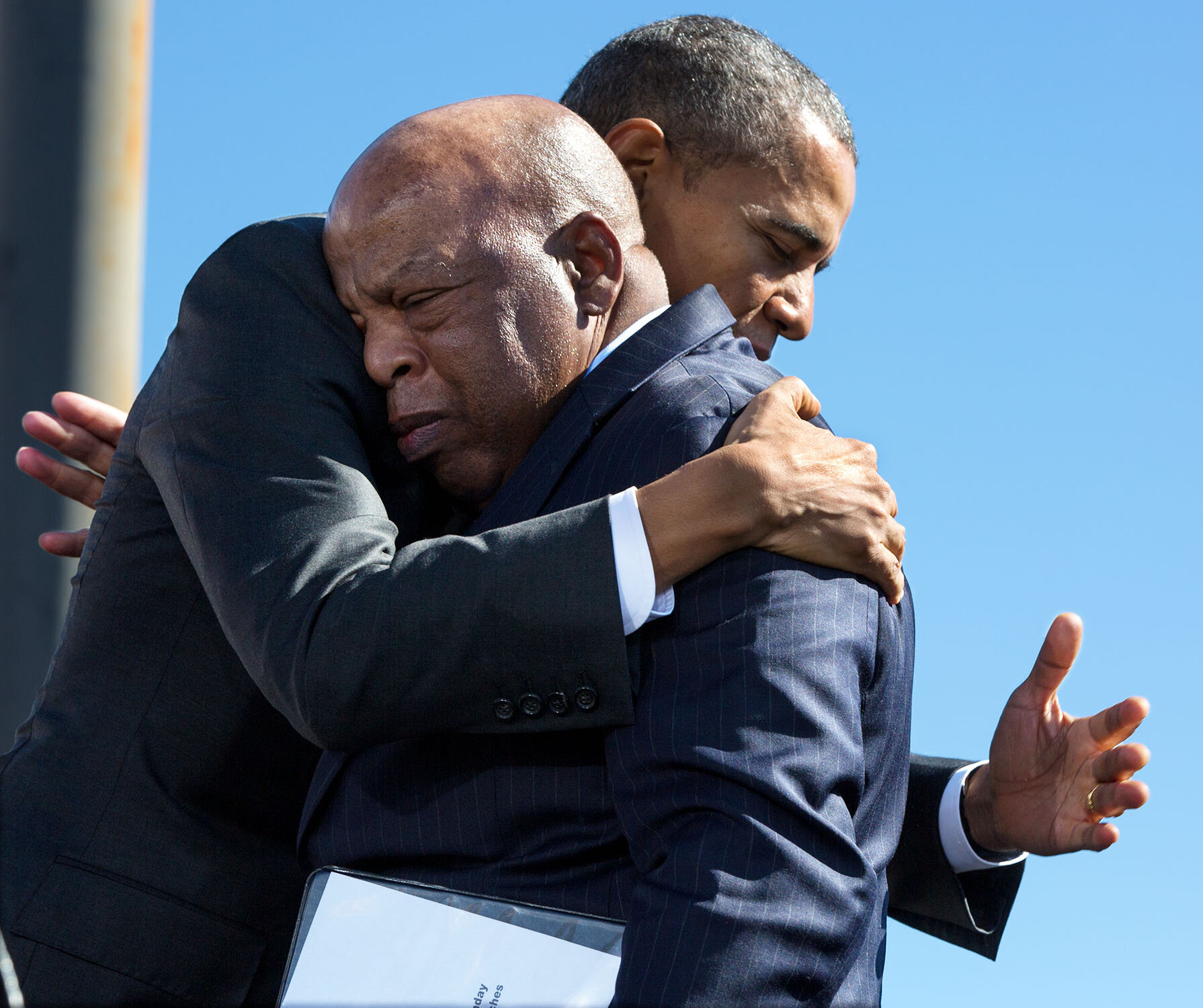IN TOUCH With A Christian Solder

“Let your light shine before others, that they may see your good deeds and glorify your Father in heaven.” —Matthew 5:16 (NIV)
There are some people who might be taken for granted. The kind ones who will always be there when needed; not necessarily family members; but more like a friend. Always there, always to be counted on; and then one day, the good friend is gone.
I never met John Lewis, but he was a friend of mine for a long time, and he did not even know it. That was fine with me because I knew if he had been around, he would have had my best interests close to his heart.
I first met John Lewis through the newspapers, magazines, radio and television. He was stirring up all kinds of “good trouble” in Nashville, Tennessee, in 1960 protesting alongside other college students with what was called the “sit-in movement.”
They were protesting segregated lunch counters throughout that city. One chain store was Woolworths, one of the original five-and-dime retailers, which had lunch counters in its establishments. That is where John kept getting himself arrested and jailed several times for sitting at the lunch counter and having the audacity to try to order food.
One of Woolworths stores was in my "neighborhood" in Washington, D.C. During my elementary school days and sometimes during junior high school, my friends and I often visited that Woolworths, sat at the lunch counter, ordered food, ate at the counter and did not get arrested. The reason the emphasis is placed on neighborhood is because that chain store once served only the white clientele, but the neighborhood changed to Black, Brown and white; new and old customers kept the store afloat for a long time. We could go to Woolworths in D.C., but John was having problems with the one in Nashville. John was on the battlefield for the Lord and his soldiering inspired other sit-ins throughout the country.
John made news in the media again as one of the original 13 Freedom Riders in 1961 that attempted to travel on an integrated bus from Washington, D.C. to New Orleans. The bus took them through the southern states that had laws prohibiting black and white passengers from traveling alongside each other on public transportation. They were confronted by mobs of violent protestors.
Between May and December of 1961 there were more Freedom Riders on buses protesting the segregation of interstate transportation facilities and bus terminals. Several prominent ministers from the movement visited churches in the D.C. area to obtain funding for the riders.
Reverend Fred Shuttleworth and Reverend Joseph Lowery, both among the leadership of the Southern Christian Leadership Conference (SCLC) often visited my church, Vermont Avenue Baptist Church, seeking financial support for those Freedom Riders. Both ministers told of the danger for those young people, and that the money was needed to get them out of jail, to feed them, house them and clothe them. Reverend Shuttleworth preached;
Reverend Lowery preached; and they always left with bountiful financial blessings for the students.
John Lewis did not often get in front of a microphone addressing the issues of inequality in those beginning days of the Civil Rights Movement. He just seemed to be in the background and quietly doing his soldiering job.
But on August 28, 1963, the day of the March on Washington for Jobs and Freedom, he was in my hometown and was a keynote speaker on that memorable day. I was down there on the Mall among the 250,000 people who attended. There were no big screen televisions for the people to view while the speakers delivered their messages. The speaker systems were enhanced with large microphones and everything was heard and there were many, many binoculars.
The next time I saw John was on the television on March 7, 1965, the March from Selma to Montgomery, when his skull was cracked by a bully club welded by a brutal police officer and then trampled over by the police pursuing the other marchers. I just knew John Lewis was dead. But John was carried out of that battle by other soldiers in God’s army and was saved.
John had a calling to fight against injustice, to fight for our civil rights and most precious to him was for us to continue to fight for the right to vote.
Even with death upon him, my friend, John Lewis managed to get himself down to Pennsylvania Avenue to stand there at the signage on the street painted with yellow letters, “Black Lives Matter.” He said a few words in front of a microphone to the young folks, “Keep it moving; Keep it going.”
And there he stood, arms crossed, a cap printed with the numbers “1619” on it, and a mask covering his nose and mouth.
A Christian giving us his last order.
